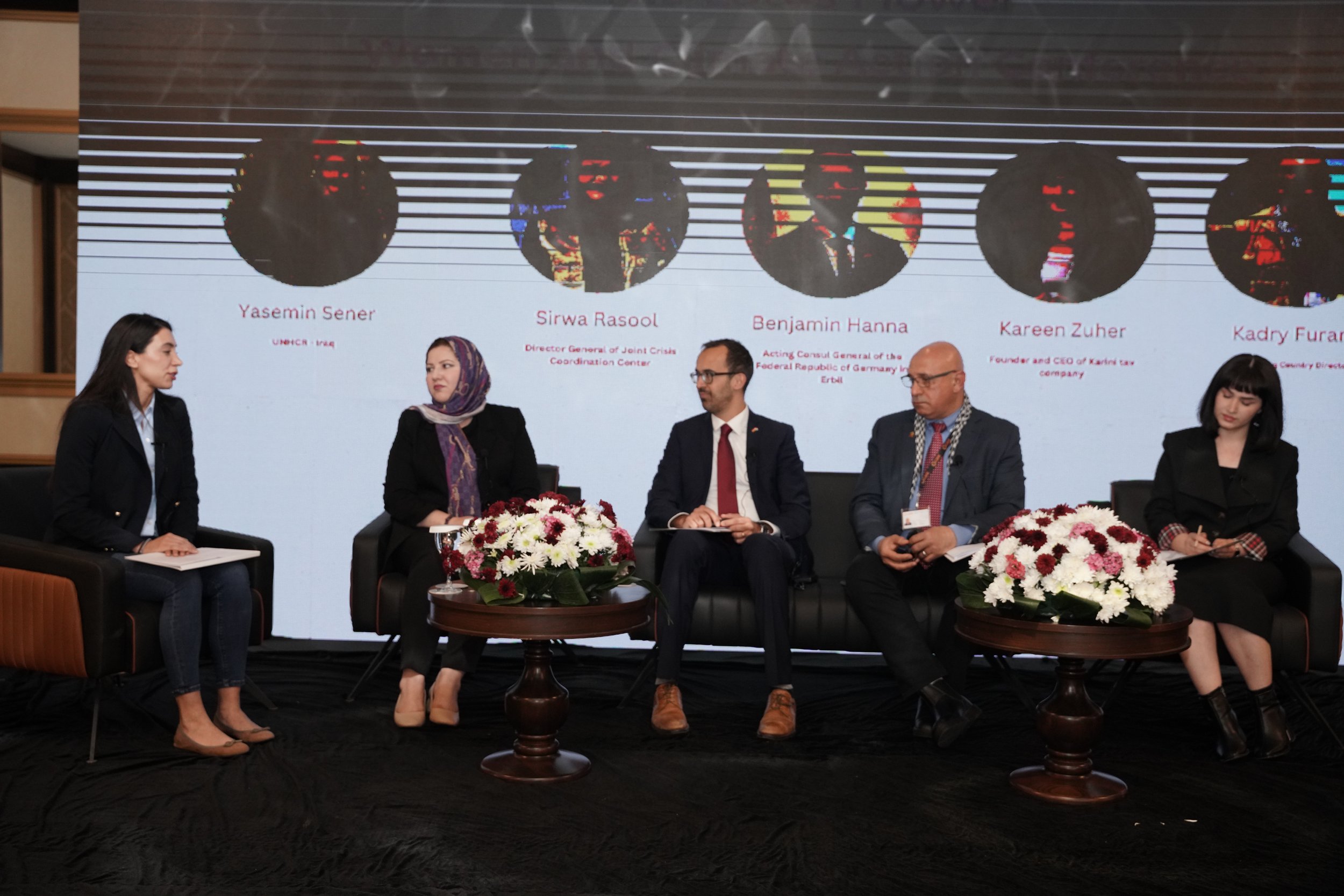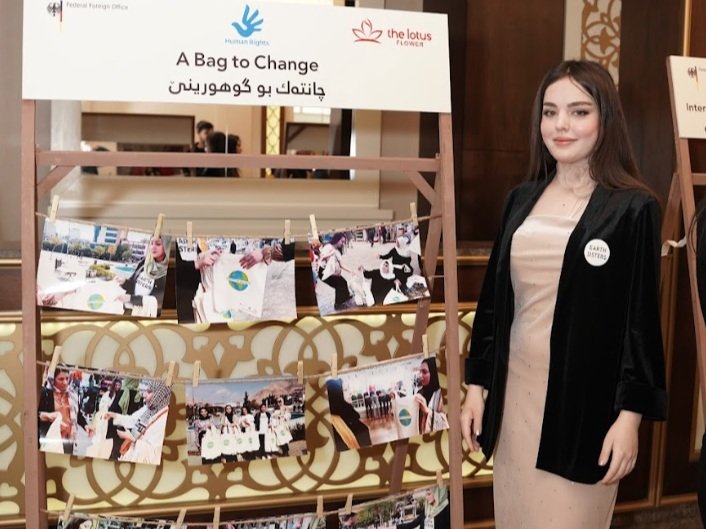Inside The Lotus Flower’s first Women and Climate Action conference
We are extremely proud to have organised and hosted our first ever Women and Climate Action conference this week.
The event at the Rixos Hotel in Duhok brought together a range of high-profile speakers and guests for important discussions around the most pressing impacts of climate change on women and girls, and ways in which we need to work together to tackle them.
Our Regional Director Vian welcomed Benjamin Hanna, Acting Consul General of Germany in Erbil
Kindly funded by the German Consulate in Erbil, the conference included a keynote speech by Dr Nazand Begikhani, Senior International Advisor to the KRI President on Gender and Higher Education, who stressed the importance of learning from climate-friendly practices of Kurdistan’s older generation. She also referenced scientific studies which show how women and girls are most vulnerable to the rising threats of climate change.
Dr Nazand Begikhani spoke about the climate threats facing women and girls
We also had welcome contributions from Duhok Governorate office and Dr Khanzad Ahmed, Secretary General of the High Council for Women and Development, who was representing the Kurdistan Regional Government. She said: “We are working at a high level to incorporate women’s views and demands into government policies, programs and initiatives. As you all know, this is not an easy task, but there is an opportunity now, and we want it. Climate change can have profound and multifaceted impacts on women, peace, and security, exacerbating existing vulnerabilities and creating new challenges. We must fight against the violence that women face due to climate change.”
Dr Khanzad Ahmed was representing the KRI Government
Dr Khanzad also spoke of the importance of everyone playing a role in tackling the issues at institutional level – through organisations, governments and the private sector – as well as at regional, national and global levels.
Another conference highlight was a topical panel discussion, which was moderated by Yasemin Sener from UNHCR Iraq. Speakers on the panel included Kadry Furani, the Country Director of CARE Iraq, who drew upon the strong connections between climate change and violence against women and girls, and how those living in displacement are especially impacted. Additionally, he explained how organisations and civil society can begin to reduce harmful environmental impacts through improved daily practices in the workplace.
Our panel in action
Fellow panellist Benjamin Hanna, Acting Consul General of Germany in Erbil, provided useful insights into Germany’s Feminist Foreign Policy, which calls for equal participation in the community and also focuses on women and climate change. Other speakers on the panel were Sirwa Rasool, Director General of the Joint Crisis Coordination Center, and Kareen Zuher, CEO of Karini Tav renewable energy company.
Meanwhile, our Regional Director Vian emphasised the importance of mainstreaming gender in climate-related interventions, and called for women and girls to have greater participation in climate action. She also told the audience that this is a key priority for the Lotus Flower, and that we hope to implement more projects which reflect this in the near future.
Our Regional Director Vian addressed the audience
A video was also shown about the Lotus Flower’s work to date, touching upon our Founder Taban’s journey and what inspired her to start the organisation back in 2016. There were also public displays showcasing some of our work, including our recent Earth Sisters climate project, and a musical performance by our partners at Nudem NGO.
With Iraq now recognised as the world’s fifth most vulnerable country to climate change and women and girls bearing the brunt of its effects, we were so glad to have the chance to further such conversations and explore solutions through our conference, and we look forward to many similar opportunities in future…










